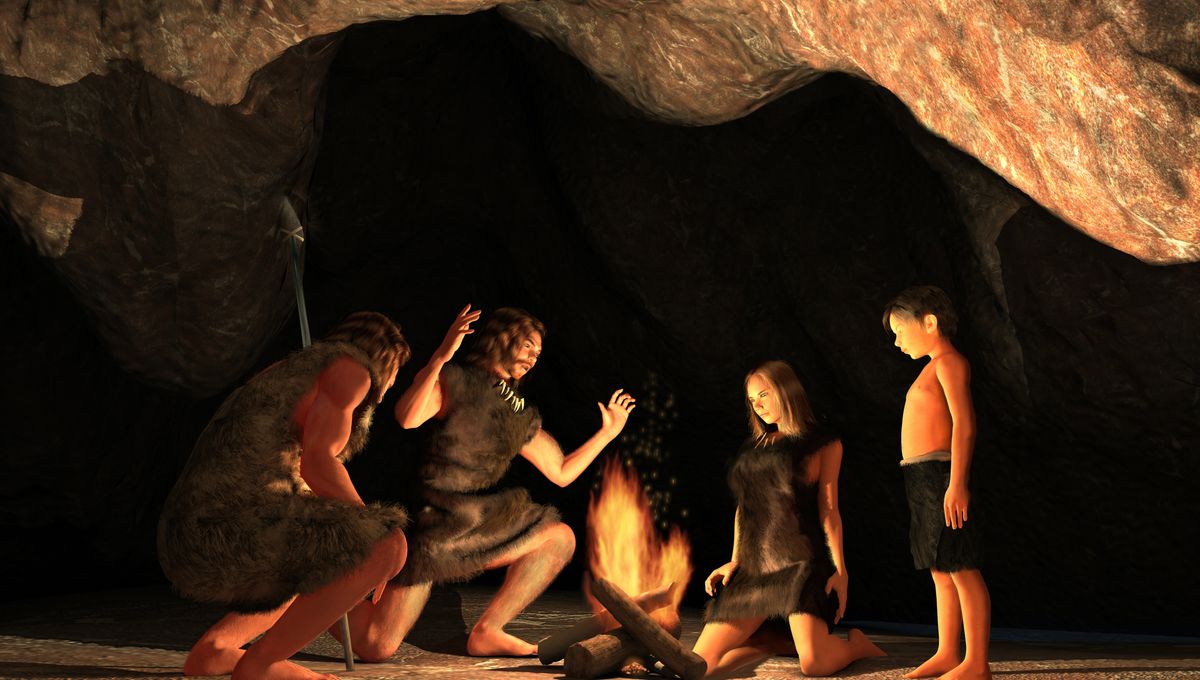
Researchers in Spain have discovered the remains of a Neanderthal child displaying a number of traits that are consistent with Down syndrome. However, unlike other prehistoric individuals with the condition, the youngster didn’t die as a baby, indicating that both the child and its mother received ongoing care and support from the rest of their ancient tribe.
The study authors came across the incredible find when analyzing bones that were originally unearthed way back in 1989 at the paleolithic site of Cova Negra in Valencia. Among these fossils were several inner ear fragments showing congenital malformations that would likely have caused hearing loss and vertigo.
“The only syndrome that is compatible with the entire set of malformations present in [the remains] is Down syndrome,” write the researchers. “It is therefore notable that the individual… lived to at least six years of age, which far exceeds the usual life expectancy of children with Down syndrome in prehistoric population[s],” they continue.
Indeed, Down syndrome is the most common human genetic disorder and is also seen in great apes, yet survival beyond infancy is thought to have been rare prior to the modern era. Among chimpanzees, one particularly moving case has been described in which a baby with Down syndrome was cared for by its mother and sister but died before the age of two.
Among our own species, five prehistoric cases of Down syndrome have been documented between 3629 and 400 BCE, with none of these individuals living longer than 16 months.
Based on the size and developmental stage of the bones from Cova Negra, however, the study authors conclude that this particular child was between six and seven years old at the time of death. “It is reasonable to think that the long survival of [this child] could only have occurred because it received continuous care and attention during that time,” they write.
Providing a little more detail on the nature of this support, the researchers explain that “because of the demanding lifestyle of Neanderthals, including high levels of mobility, it is difficult to think that the mother of the individual would have been able to provide such care alone and also carry out normal daily activities over a prolonged period of time. It is likely, therefore, that the mother required the continuous help of other members of the social group, either for assistance in performing other daily tasks (or to relieve her from performing them) or to directly assist in providing the necessary care for the child, or both.”
Such conclusions contribute massively to the discussion surrounding the origins of empathetic and humanitarian behaviors within the Homo lineage. While evidence for caregiving among Neanderthals has been documented in the past, some anthropologists have argued that this emerged as a kind of self-interested pact between individuals who could return the favor.
Yet the authors of the new study say their case “is particularly interesting because social care was destined to an immature individual who had no possibility to reciprocate the assistance received.” This, in turn, strengthens the argument that caregiving among Neanderthals has its roots in true altruism, rather than stemming from a need to secure future services from indebted individuals.
Putting these findings into context, the researchers say their findings indicate that “caregiving and collaborative parenting occurred together in Neanderthals and that both prosocial behaviors were part of a broader social adaptation of high selective value that must have been very similar to that of our species.”
The study is published in the journal Science Advances.
Source Link: Neanderthal Child With Down Syndrome Highlights Altruism Among Ancient Humans